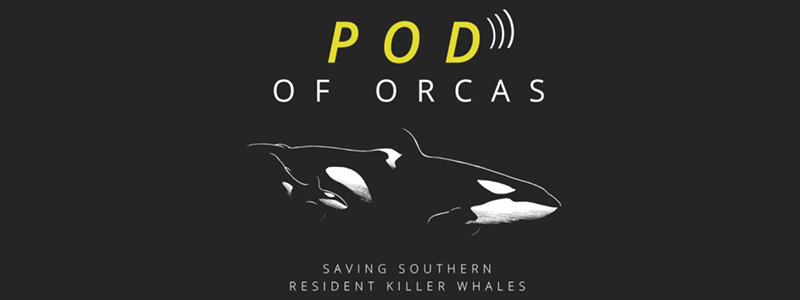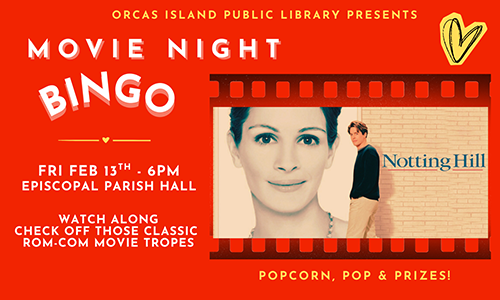‘Pod of Orcas’ is a podcast by local nonprofit, SeaDoc Society
||| FROM SEADOC SOCIETY |||
Among the many live events that were wiped away by the pandemic was the SeaDoc Society’s live Ocean Night series that they host at the SeaView Theatre each winter.
“We love Ocean Night because it’s a chance for us to directly connect with the island we call home,” said Justin Cox, SeaDoc Society Communications Manager. “When this winter’s series got cancelled, we got to thinking about what we might do in its place.”
The result is a limited podcast series called Pod of Orcas: Saving Southern Resident Killer Whales, which launched April 1. The series is hosted by Cox and SeaDoc Society Board President Kevin Campion. SeaDoc Society is a donor-funded nonprofit based on Orcas Island.
Only 75 southern resident killer whales remain in the wild, and the population is looking directly at extinction if humans don’t pay immediate attention to their plight. Pod of Orcas will tell their story over six-weeks.
“It’s not an exaggeration to say we could lose the population entirely in the not-so-distant future,” said Cox. “We wanted to make a series that’s rooted in science and could appeal to the wider population, beyond those who are already working hard to save the southern resident killer whales.”
Southern resident killer whales are facing three major challenges, and they all compound one another.
- Their sole food source, salmon, has plummeted in the Salish Sea. There are fewer fish, and the fish that remain are far smaller than they were in the past.
- Shipping traffic and boat noise have made the sea louder. That is a big deal considering orcas hunt and communicate through sound.
- Humans have released contaminants in the water and scientists are finding high concentrations of them in killer whales after their deaths. Persistent toxins compromise their immune systems and can even be passed down to babies through their milk.
Killer whales are emotionally intelligent animals, and they have complex family dynamics. They also have a deep spiritual connection to the tribes and First Nations who have been in the Salish Sea since time immemorial.
“I was lucky to speak with some incredible guests, and I can’t wait to share these conversations,” said Cox. “We explore everything from salmon, noise and toxins to culture, captivity, history and even what we could learn from mountain gorilla conservation.”
The series spotlights some of the organizations in the Salish Sea who are doing the work to better understand and try to save the declining population. The debut episode features renowned orca researcher Dr. John Ford, who has studied the species since the 1970s and will describes how things have become so dire for this population of whales.
The podcast is available on all podcast apps under the name Pod of Orcas: Saving Southern Resident Killer Whales. Episodes are also available at www.seadocsociety.org/podoforcas.

**If you are reading theOrcasonian for free, thank your fellow islanders. If you would like to support theOrcasonian CLICK HERE to set your modestly-priced, voluntary subscription. Otherwise, no worries; we’re happy to share with you.**








This podcast is a great idea, long overdue.